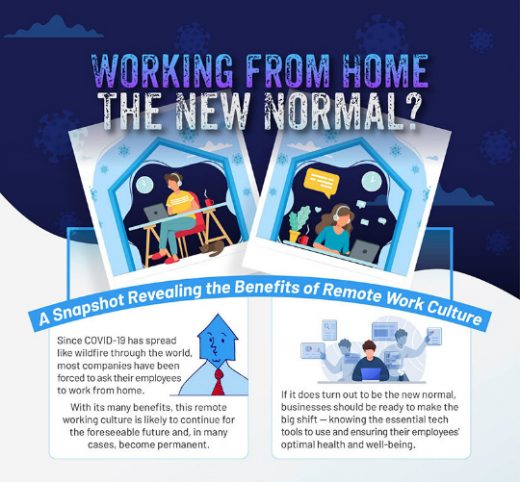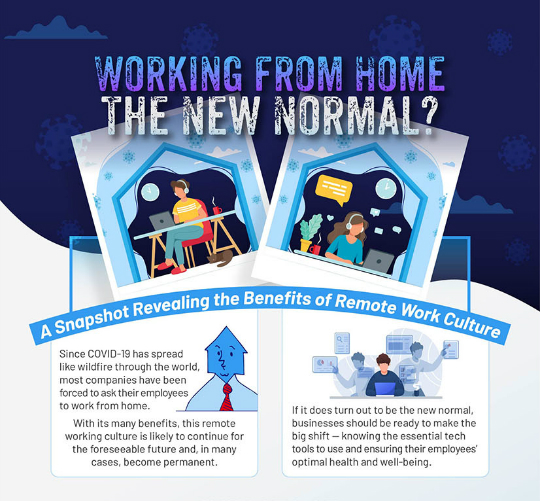The Impact of Working Remotely During (and After) COVID-19
The Impact of Working Remotely During (and After) COVID-19
2020 has turned out very differently to what most people were expecting. The year has so far brought misfortune in a variety of ways, and few have been unaffected. The social distancing restrictions that have been imposed around the world have left large sections of society unable to travel to their normal places of work. This has meant that the only way for many people to continue working is to do so remotely, if this option is available to them.
In recent decades, working remotely from home or another location has become possible for more people, depending on the employer and the nature of the work. With wider connectivity, improved mobile technology and app development, remote working has never been so easy to manage. But the coronavirus has precipitated a change in working arrangements that would otherwise have come up against resistance in the form of traditional values and those preferring to avoid any potential disruption.
A new infographic that has been created by London IT support company, Computers In The City, shows how the new changes brought about by COVID-19 have impacted the world of business.
For businesses, there are many reasons remote work is an attractive prospect. More flexible working arrangements are proven to increase productivity by allowing more suitable and individualized conditions, and increase efficiency by breaking down time-consuming processes and traditions.
When employees are allowed to work remotely, they will be happier in their jobs, which leads to an improvement in employee retention. Companies that allow their staff more freedom will also be a more attractive prospect for potential employees. Staff will be more loyal as they are more satisfied with their work-life balance. In addition to this, businesses will increase savings as office space can be reduced, along with office supplies, furniture and refreshments.
The benefits can also be enjoyed by employees, who have more freedom to organize their work to suit their personal preferences. A more flexible work-life balance has been shown to reduce stress levels and improve overall health and wellbeing. The greater independence can mean that individuals can learn more IT skills, as well as time management and organizational skills. Employees will be able to save both time and money through escaping the daily commute, which means there will be more spending money and hours in the week for free time activities. This will also reduce carbon emissions and help to improve the environment, which is another positive motivational factor.
However, working remotely is not all plain sailing and there are some issues to be mindful of. Each individual will respond differently to the transition to a remote working lifestyle. Some people find the isolation difficult or they struggle to organize their time effectively. Therefore, it is important to ensure that all employees are well connected with others, and have access to guidance and supportive networks.
There are now many cloud-based tools, such as Slack, Google Drive and Zoom, that make remote work more convenient. But there are also some technical challenges to overcome when employees are working from home or another location. Cybercrime is an enormous threat to all businesses and individuals in the digital age, and it is growing by the day. Almost half of U.K. businesses were victim to cyber-attacks in the last year, and these can often be extremely damaging.
Employees working remotely can represent a vulnerability in a business network that hackers will attempt to exploit. It is essential that businesses develop and strictly enforce protocols and procedures for those working at home. This includes the use of a virtual private network (VPN), firewall, antivirus and antimalware, encryption and multi-factor authentication. Staff need to receive training and be made aware of the basics of cybersecurity and the dangers of threats such as phishing.
With uncertainty over when and how we will all be able to return to our former routines, the working from home lifestyle is looking to be the new norm. While this may come with challenges, the benefits stemming from remote work may significantly outweigh possible transition hiccups for many businesses and their employees.

Full infographic courtesy of Computers In The City
About the Author: Zak Gottlieb
Zak Gottlieb is the Business Development Manager for a London-based IT support organization focusing on small and medium-sized businesses. An experienced consultant, he has accreditation with such companies as Microsoft, HP, and Cisco.
(36)



